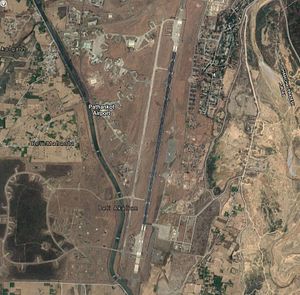Earlier this month, Indian news broadcaster NDTV received a blackout order from the government. Their coverage of the Pathankot terror attacks in January 2016 was identified as flouting the guidelines issued after the panic caused by the 2008 Mumbai terror attacks and their media coverage. An inter-ministerial committee of the Information and Broadcasting Ministry decided to take NDTV off air for a day, on November 9, 2016, as a penalty for disclosing so-called strategically sensitive information during the broadcast of the attacks.
Information and Broadcasting Minister Venkaiah Naidu has defended this decision on grounds of national security and alleged that the coverage violated India’s national interest, calling its opponents politically inspired. Defense Minister Manohar Parrikar has said that this is not to be regarded as a ban so much as broadcasting operations temporarily put off. He alleged that the display of aerial assets and the ammunition dumps at Pathankot during the broadcast constituted a threat to not just national security, but also the lives of serving personnel. He also declared that the previous UPA regime led by the Congress had issued nearly 21 times the number of guidelines to the media, arguing thus that the BJP-led regime was not out of line.
The Congress Party’s spokesperson Manish Tewari on the other hand alleged that this was a strong message to the media to either “play ball or get shot.” He accused the Ministry of hiding behind a committee’s recommendation, implying that the ban was self-serving in nature. He alluded to a time when he was the Information and Broadcasting Minister, and was asked to take a channel off the air for their coverage of riots in Muzzaffarnagar but refused to do so. Congress Vice President Rahul Gandhi further called this the act of a government that is obsessed with power and “seeking to silence.”
Meanwhile, the right-wing Shiv Sena declared that to politicize this ban was tantamount to disrespecting and playing with the need for national security, several other parties backed the Congress’ stance. Maharashtrian MP Supriya Sule called this an act of suppression. Bihar’s Chief Minister Nitish Kumar called this an encroachment upon freedom that was condemnable. He stressed that a free and impartial news media was a necessity for democracy. Bihar’s former Chief Minister Lalu Prasad Yadav called this an emergency-like situation in the country and decried the move, going so far as to imply a path towards dictatorship.
The NDTV’s own response seemed to echo this parallel to an emergency. They unequivocally refuted claims of compromising national security, and stressed that they broadcast no details that other news and media outlets did not put out as well. A post discussing why NDTV seems to have been singled out went viral – and oddly enough no longer seems to be up. An overwhelming number of media organizations rallied behind NDTV, including the Editors Guild of India, the Indian Women’s Press Corps, and the Press Club of India. The Press Club of Hyderabad even held a journalists’ protest march, and the Congress Chief in Punjab threatened to stage a sit-in outside the governor’s office if the blackout orders were not withdrawn.
Eventually the blackout was first put on hold, and finally decision was deferred to a hearing, which is to be held on December 5, with the Attorney General citing that there was no urgency, as the government was considering a plea to review its decision.
The blackout order has evidently become a site to enact political games, as parties are quick to support or defend actions that would give them maximum maneuverability. Some parties opposing this blackout are also ones that have engaged in similar forms of censorship at smaller levels for different reasons. At the heart of these debates however, no matter what principle (or lack thereof) they espouse, all parties have identified the core threat to freedom of expression that this ban poses in its very inception.
The cloak of national security is an all too convenient one that proponents of censorship increasingly don in India. The cloak of moral decency as a rally against obscenity is another. What crusaders on these grounds fail to recognize, or perhaps fully recognize and exploit, is that these arguments are becoming an impenetrable wall. Those arguing against censorship on national security grounds automatically get branded as threats themselves and unpatriotic ones at that. Those arguing against censorship of so-called obscenity are labeled morally depraved or slaves to values foreign to the nation.
The problem is that when taken to be paramount, a censorship defense like a claim of a national security threat becomes so impossibly hard to argue against. This allows those in power to cloak their own shortcomings under this garb, while booting the watchdogs that point out the flaws. The organizations that stood by the NDTV have minced no words in pointing this out and exposing this blackout order as utterly uncalled for. Yet, across the board, parties have increasingly displayed these censorship tendencies and they rest well protected under statues like the Cable Television Networks (Regulation) Act that allowed this one.
The BJP is not the first to exploit it in India – and they will not be the last.

































